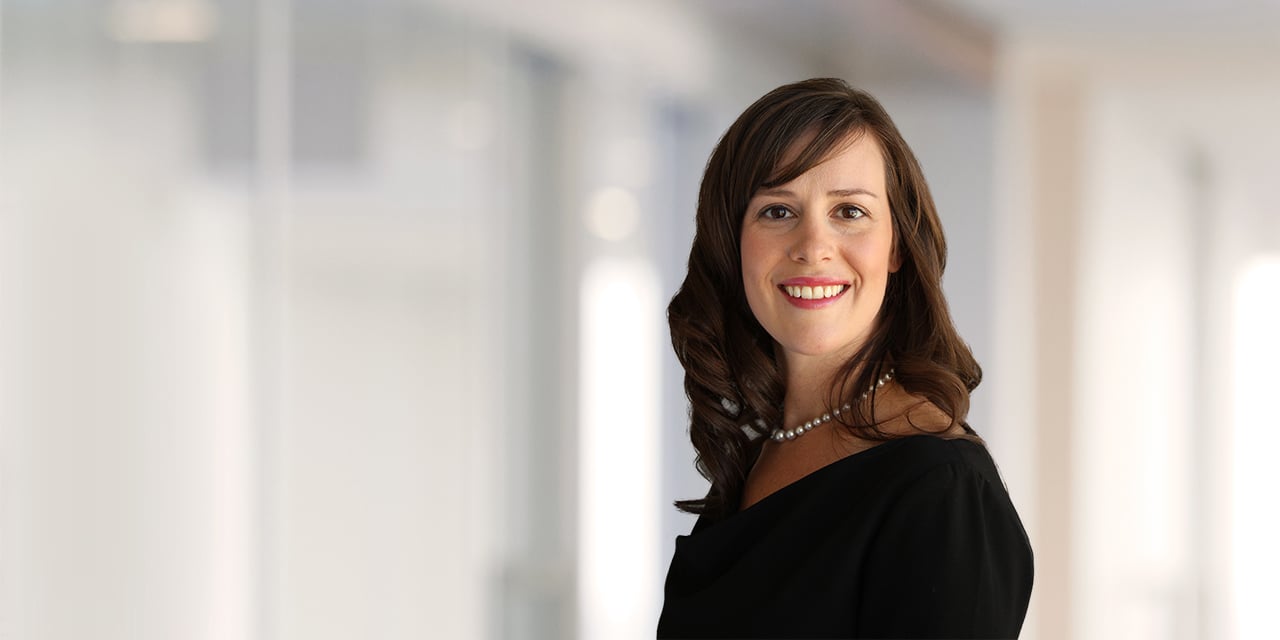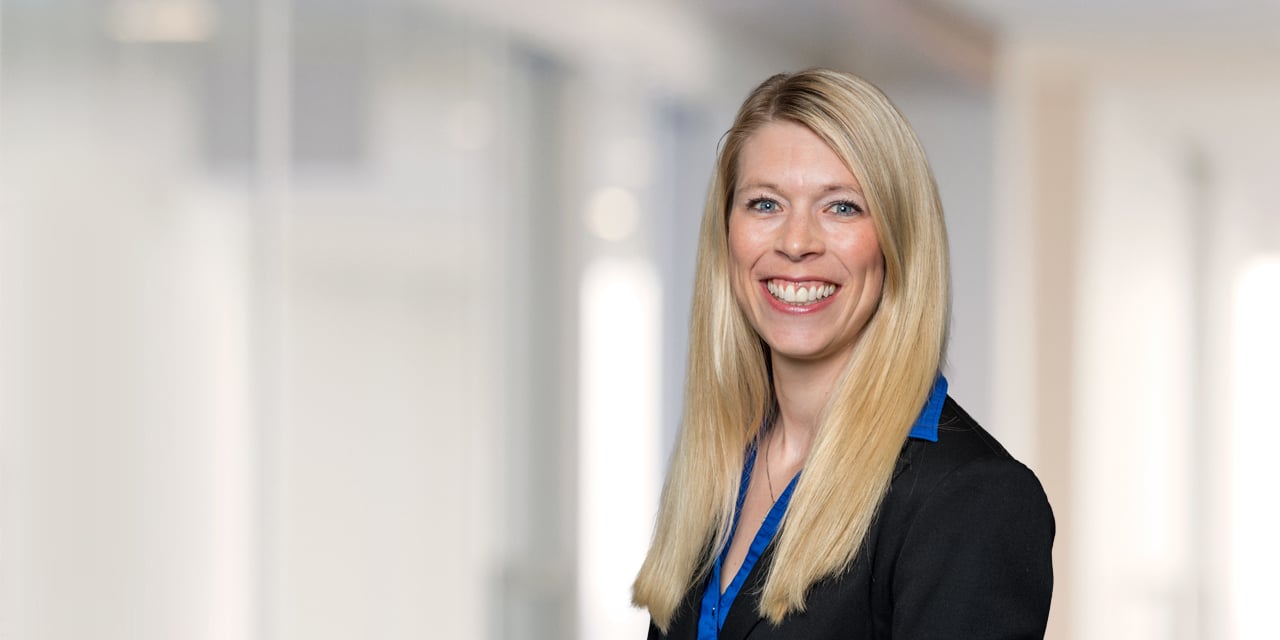
Women Talking Wealth: Kathy Cobb
Our Women Talking Wealth series features Baird’s leaders discussing their perspective on wealth and how they manage their personal finances. For our first conversation, Baird Business Development Consultant Kathy Cobb talks about growing up in a large family, the challenges of staying organized and how she and her husband balance competing financial priorities.
How would you describe your role as a Business Development Consultant?
I partner with Baird Financial Advisors to develop a differentiated wealth management experience, one that provides personalized financial advice that goes beyond traditional investment consulting anchored on a deep personal client relationship.
When did you start your financial journey?
I’m from a small town in Wisconsin, and as the second youngest of nine kids, growing up I developed a strong work ethic and recognized the value of money. My first job was at age 15 as a waitress – I was horrible! I was great with people, but I had trouble carrying heavy trays of food. I once spilled chocolate milk all over a customer!
I knew I would be paying my way through college, so during my freshman year I got a job at the UW–Milwaukee security desk. I began my work in financial services with Strong Funds during my sophomore year and worked there through graduation. This was a valuable foundation because as I was pursing my degree in Finance and industry licensing, I was able to apply what I learned on the job.
What lessons did these experiences teach you?
Resilience. My father passed away when I was 11, which meant my mom, who had stayed at home to raise the kids, needed to reenter the workforce. Our world was flipped upside down, but in those moments, watching my mother persevere instilled a passion in me to create financial wellness so in the face of the unexpected you can focus on what really matters. In our house, that was our faith and family.
There were also many practical lessons, like budgeting. My mother got us involved in the household finances by creating envelopes for each household expense that included the allocated amount to be spent. Before filling up each envelope, my mother would insist we put money toward our savings first. Then, if we needed money for entertainment, for example, we would go into that envelope to retrieve the amount needed. This not only taught us budgeting but the value of money.
Also, in our house, there was no idle time – all the kids were encouraged to either participate in sports or work. That’s probably where I get my work ethic from.
Has working in the financial industry affected the way you handle your finances?
I’d say financial services taught me to appreciate financial expertise and to take advantage of any opportunities that come your way. For example, my first job out of college had a 401(k) benefit, and right away, my financially minded colleagues would ask me, “Have you started your 401(k)? Are you contributing to it every paycheck?”
What is your relationship with your Financial Advisor like?
Professional advice and having an accountability partner are important to my husband and me, so we especially value our relationship with our advisor. What’s been especially beneficial is the opportunity to engage in deeper conversations that go beyond investments. With the guidance of our Financial Advisor we talk about what’s important to us about money and how that translates into our financial priorities. Together we develop a plan to work towards these goals, which can sometimes mean finding balance when we have different points of view.
Can you give us an example?
So my husband and I work in different areas of finance. As a mortgage underwriter, my husband felt it was important we invest in real estate and generate income. Meanwhile, my experience on the investment side of things pushed me to want to invest more in the stock market. Our Financial Advisor helped us explore how we can pursue both objectives.
Another example involves paying for college. My husband shares the goal that a lot of parents have, that they want to pay for their kids’ education. But for me and how I grew up, I think it’s important that your child invest in their college experience – you’re more likely to show up to class and make responsible decisions when you’re paying for it. It was important for us to find a way to instill both of our values into how we planned for education.
What are some of your current financial goals? How do you prioritize your finances to achieve them?
We have a five-year-old son, so education planning is important to us, as is retirement planning. Given what happened with my dad, we also made estate and insurance planning a priority when Callaway was born.
Also, while we don’t have a lot of hobbies, we take family vacations very seriously – preferably someplace warm where we can relax on a beach and experience some culture. So part of our financial plan is figuring out how to save for our future goals while still sharing in the family experiences we want today.
What is the most challenging part of organizing your personal finances?
Life can get busy, especially when you’re a parent. Finding the time to focus on our family finances and priorities can be challenging, but we both recognize how important it is. We have regular weekly and monthly conversations to make sure we’re on the same page financially, and we talk with our Financial Advisor every 3–6 months, with lots of communication in between.
Are there resources you have found helpful when navigating your finances?
BairdWealth offers short articles on personal finance that I find really informative. I also helped coordinate the BairdWealth Strategies webinars as part of my job, which allowed me to listen to Baird’s financial experts firsthand. Baird's Personal Information Guide lets me keep everything in one place, and 360Wealth on Baird Online shows me my family’s complete financial picture.
Last question: What’s the best advice you were given on how to handle your finances? What advice would you give other women?
The advice I grew up with as a kid was, “Don't spend money you don’t have!” Sometimes you just have to stay patient and work for what you want. My advice to other women would be to get involved and have a voice in their finances. Stay focused on your financial goals, and don’t let yourself get distracted by others. Most importantly, don't feel you have to go it alone – having someone in your corner to help you achieve your goals and keep you accountable is invaluable. We are grateful to have that in our Baird Financial Advisor.
Learn more about how our female associates continue to inspire and lead our firm.
The information offered is provided to you for informational purposes only. Robert W. Baird & Co. Incorporated is not a legal or tax services provider and you are strongly encouraged to seek the advice of the appropriate professional advisors before taking any action. The information reflected on this page are Baird expert opinions today and are subject to change. The information provided here has not taken into consideration the investment goals or needs of any specific investor and investors should not make any investment decisions based solely on this information. Past performance is not a guarantee of future results. All investments have some level of risk, and investors have different time horizons, goals and risk tolerances, so speak to your Baird Financial Advisor before taking action.


